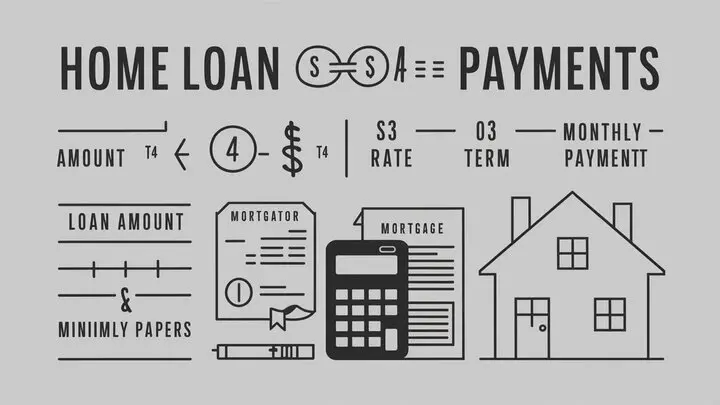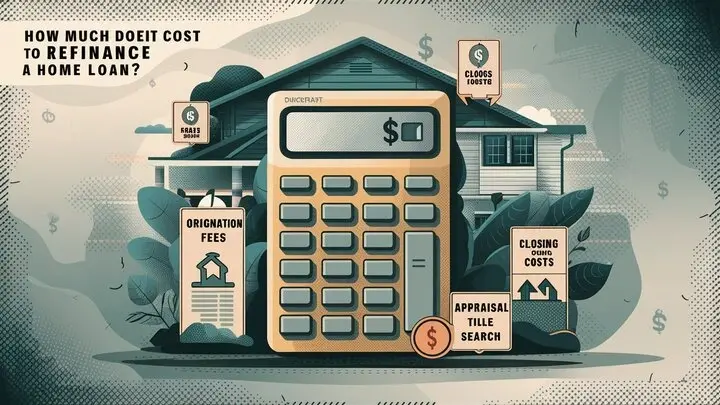-
Posted on: 23 Aug 2024

-
If one is a homeowner and needs to borrow money for things such as home improvements, medical expenses, college education, or debt, then a home equity loan may be something to look into. A home equity loan enables you to use the equity that you have in your home by borrowing money at low interest compared to other loans. But where exactly should you go to apply for and get approved for a home equity loan? This guide discusses the major ways through which one can access home equity loan financing.
Your Current Mortgage Lender Another advantage of home equity loans is that one of the best places to get one is from the lender that offers you the mortgage. It is common to find home equity offerings among major mortgage players including banks, credit unions, and mortgage companies. Applying and getting approved for a cash-out refinance through your current mortgage holder is easier because they have most of your home and income records already. Most of the lenders also give their current customers rebates on their closing cost and interest rates. Most of the times, you can complete an application for a home equity loan either online or by getting an appointment to see a loan officer. It also takes a shorter time when you are working directly with your present lender.
Major National Banks
One can secure home equity loans and lines of credit from large national banks. All these types of loans are available at most of the big banks such as Wells Fargo, Chase, Bank of America, Citi, and US Bank which have specialized home equity lending departments for underwriting these loans. Major banks may have different specific loan offerings, loan limits, fees, and rates so it is advised to acquire multiple quotes. A good thing with a big bank is that they have set policies to follow when approving loans and therefore it is easier to apply for a loan from such a bank compared to a small one. It also often enables you to apply for the big bank through online banking if you are interested in doing so.
Banks & Credit Unions in the local Communities
To get individual attention, one may wish to apply for a home equity loan from the local community banks or credit unions. Smaller lenders are also usually more flexible than large banks when it comes to assessing the applicant’s income, credit score, and the value of the property for a loan. This can mean they may be more likely to approve those with poor credit or some other type of financial situation. Local lenders are knowledgeable of the real estate markets within their reach and can therefore correctly evaluate homes in terms of lending. A community bank or credit union is a perfect choice because you’ll be dealing with one loan officer who will help you go through the entire process from applying for the loan to closing the deal. The flip side is that small institutions tend to charge a little higher rates and fees than large banking institutions.
Online Lenders and Mortgage Brokers
With the development of the Internet, the procedure of applying for financing becomes more accessible than before. Currently, there exist numerous non-bank specialized lenders that provide home equity loans and lines of credit exclusively through websites or applications. Some popular options to look for include LendingTree, Lightstream, and SoFi. The submission and support of the online lending applications is flexible by the use of phone contacts and or electronic mail and or facsimile and or mail depending on the lenders. In terms of approvals, it can take only 1-3 business days and funding, 7-14 business days on average. Loan companies such as loanDepot also have teams of professional home lending advisors ready to help clients. A word of advice for those who are thinking of taking a loan from online lenders is: It is important to consider all aspects of the loans such as the repayment period, the maximum amount one can borrow, and the closing costs for the loan.
Government Loan Programs Certain departments in the government such as the FHA (Federal Housing Administration) have home equity loan programs that come with favourable rates of interest and reasonable down payments compared to other loans. These loans are provided directly through participating lenders that you can look for in your state. The FHA home equity loan can be used for almost any purpose by qualified borrowers as long as they keep enough equity in the home. Other agencies such as VA and USDA also support specialized home equity products that can be suitable for some borrowers like veterans, military personnel, and low-income earners. Consulting with other loan officers who are well acquainted with the programs is advised.
Home Equity Loan Considerations Before pursuing a home equity loan or HELOC (Home Equity Line of Credit), you should weigh several key factors besides where to apply specifically:Before pursuing a home equity loan or HELOC (Home Equity Line of Credit), you should weigh several key factors besides where to apply specifically:
-
Loan costs - Determine the total of origination fees, closing costs, and now current interest rate being charged
-
Loan amount limits – Lender often restrict Loans to value of home at 80- 85% maximum depending on its policies and regulations.
-
Repayment period – Standard terms are 5 to 30 years based on the type of home equity loan or draw on the line
-
Credit score conditions – Most of the lenders have their own standards of approval but credit scores below 620 are difficult to meet.
-
Minimum requirements for home equity and loan to value (LTV) for approval
-
Secondary financing risks – If the existing situation implies that there is already a mortgage in the house, further placing a second mortgage is riskier
-
Closing process and timeline – It’s important to collect the required financial statements in advance before filing an application.
-
Tax deductibility – Interest deductions are not allowed in the same manner as other expenses, so consult your tax advisor.
Although home prices have gone up even further in recent years enabling homeowners to borrow more of their equity, borrowing still entails some certain risks that anyone should consider. It is advisable to conduct good research and determine the obligations that come with signing anything before doing so.
-










